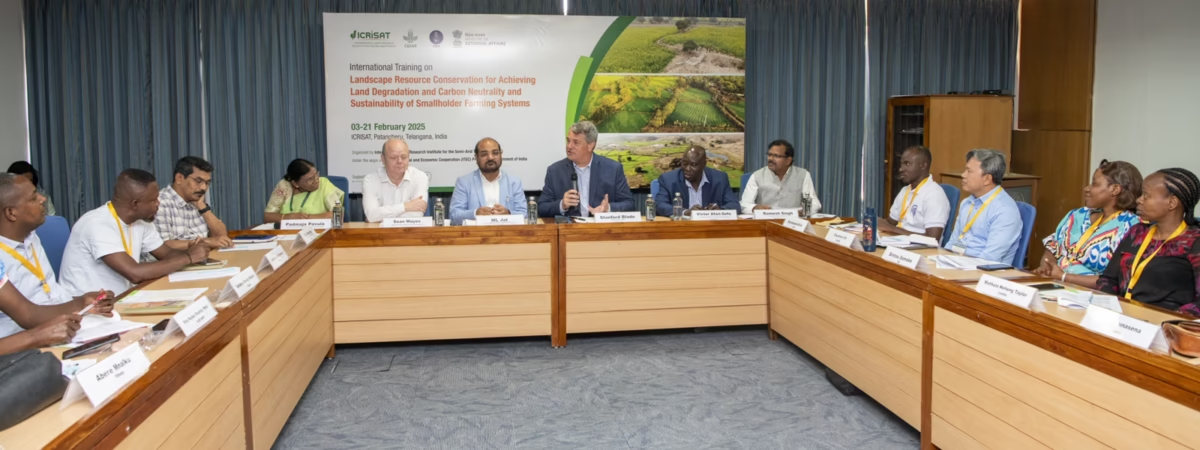ICRISAT trains officials from 14 Nations to achieve Carbon Neutrality
The program brought together 24 participants from 14 countries—Ghana, Tajikistan, South Sudan, Myanmar, Morocco, Ethiopia, Cambodia, Liberia, Mali, Chad, Sri Lanka, Lesotho, Iran, and the Philippines.
A transformative three-week International Training on Landscape Resource Conservation concluded today at the International Crops Research Institute for the Semi-Arid Tropics (ICRISAT), strengthening south-south collaboration in the global fight against land degradation and climate change.
The program brought together 24 participants from 14 countries—Ghana, Tajikistan, South Sudan, Myanmar, Morocco, Ethiopia, Cambodia, Liberia, Mali, Chad, Sri Lanka, Lesotho, Iran, and the Philippines—to tackle critical challenges such as land restoration, carbon neutrality, and smallholder farming sustainability.
Organized by ICRISAT, under the aegis of the Indian Technical and Economic Cooperation (ITEC) Program of the Government of India and supported by ICRISAT’s Dryland Academy, the program provided a platform for sharing global best practices.
Addressing participants, Dr Stanford Blade, Director General-Interim of ICRISAT, highlighted the importance of two-way knowledge exchange and encouraged continued collaboration beyond the workshop.
“This training is not just an academic exercise; it embodies the spirit of South-South collaboration. I urge you to stay connected and build on this resource base to drive meaningful change,” Dr Blade emphasized. He also acknowledged the support of the Ministry of External Affairs, Government of India, for facilitating the program.
Dr ML Jat, Deputy Director General-Research (Acting) and Global Program Director, Resilient Farm and Food Systems, ICRISAT, encouraged participants to translate their learnings into tangible actions.
“When you return to your countries, consider how you can apply these insights to benefit your communities. We deeply appreciate the support of your governments and institutions in sponsoring your participation,” said Dr Jat.
At the inaugural session, Dr Ramesh Singh, Principal Scientist & Cluster Lead-ICRISAT Development Center, provided an overview of the course, while ICRISAT’s Global Research Program Directors, Dr Sean Mayes and Dr Victor Afari-Sefa, emphasized the role of collaborative research in addressing global challenges.
The training covered key themes such as landscape hydrology, land resource inventory, natural resource management (NRM) structures, digital tools for landscape management, water budgeting, climate-resilient agriculture, sustainable farming practices, and nutrient management.
The program brought together 24 participants from


